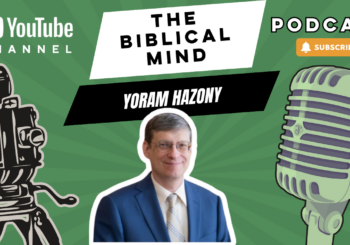Bowing in the Service of God
Why does the Bible command bowing before God? This action of worship is foreign to us, and some philosophers have argued it is demeaning.1 “Kneeling down or groveling on the ground, even to express your reverence for heavenly things, is contrary to human dignity,” Immanuel Kant, Metaphysical Principles of Virtue, in J. Ellington (trans.), Ethical Philosophy (Indianapolis, IN: Hackett),1994. I will argue that it is quite the opposite. Bowing elevates us by shaping us into servants of God. Being a servant of God is not, fundamentally, some internal state: a belief or emotion. Serving God is political; it is an attitude one takes in the social realm. God is a king whose aim is to rule with justice and charity, and the rule of any king is only made possible by the king’s servants, who assist him. Thus, becoming servants of God requires assisting God by taking responsibility in bringing justice and charity to other human beings. Bowing before God makes us into better human beings by shaping us to take responsibility for others.
The Service of God
To understand bowing, we must first understand serving, which includes bowing. The biblical commandment to bow often comes in conjunction with the commandment to serve (evod) (see, for example, Genesis 27:29; Exodus 20:4; Deuteronomy 5:8; Deuteronomy 11:16). Bowing, I suggest, is part of service, which is the more general way we are told to relate to God. If bowing is part of a life of service, then to understand bowing, we must understand what it means to be a servant.
Enjoying this article? Read more from The Biblical Mind.
At first, turning to the uses of the word service (evod) in the Hebrew Bible can be confusing. We find that God promises to take the Israelites out of the house of servitude (Exodus 20:2) and save them from the terrible service they must perform for Pharaoh (Exodus 1:14). This seems to imply that the Bible thinks service is bad and should be avoided. Yet when God sends Moses to free the Israelites, He says the purpose is that they will serve God in the desert (Exodus 7:16). It turns out that when the Israelites are freed from slavery, they are not freed in order to stop serving. Rather, they are offered the opportunity to exchange the service of a tyrannical master for the service of a redeeming master. According to the Hebrew Bible, some forms of service are slavery, whereas some forms of service are good.2 2. This broad spectrum of eved is retained throughout the Hebrew Bible. A person who loses all their possessions and is sold into service of another is called an eved (Deuteronomy 15:12). But not all avadim are slaves. Anyone who has a master above him is called an eved. Abraham’s second-in-command is an eved (Genesis 24:2), and David’s war heroes are his avadim (Samuel 1 25:10). For the argument that eved has this spectrum of meaning see E. Jenni and C. Westermann (1997) ‘עבד’, in M. E. Biddle (trans.), Theological Lexicon of the Old Testament (Peabody, MA Hendrickson Publishers), 821.
But what could be good about serving someone? Why does the Hebrew Bible use service to describe the relationship of a person to God? Yoram Hazony, in his book The Philosophy of Hebrew Scripture, points out that the Bible uses terms from our everyday life to teach us about God.3 Yoram Hazony, The Philosophy of Hebrew Scripture, Cambridge University Press, 2012, p. 84-86. In order to understand the Bible’s teaching about God, we must understand the terms being used in their human context. Therefore, in order to understand why the Bible commands us to serve God, we must understand what is good about service in the political realm, where the term is taken from.
In order to understand why the Hebrew Bible views service of God as a good thing, let us think of the political reality of the Hebrew Bible. In a world of human kings, a king cannot carry out or even oversee all the many projects that are required to bring about prosperity for his people. Therefore, a king needs loyal servants who will assist him in defending his kingdom from external enemies, in ensuring peace from internal turmoil, and in cultivating the religious, cultural, and economic prosperity of his people. Such loyal servants are rare, since many human beings who have some influence and power tend to think that they could replace the king and rule themselves. But a country filled with such people will fall into turmoil and bloodshed. This means that the servants who help the king are crucial to the peace and prosperity of their people.4 You can see that the Hebrew Bible authors think that having no king makes for chaos and bloodshed in the stories of the Book of Judges and the repeated injunction “In those days there was no king in Israel, each man did as was right in his own eyes” (Judges 21:25). Service is good because it makes peace and prosperity possible.
The Bible likens God to a king (see for example Exodus 16:18; Judges 8:23; Samuel I 8:7). This comparison teaches that God, too, needs loyal servants to ensure his rule. Like a human king, God cannot carry out his plans alone. God oversees the actions of others, but he needs human beings who will take charge, command, lead, and act as an example so that his charity and justice will prevail.5 God puts man in the Garden of Eden to work the land and protect it (le’ovda u’leshomra) (Genesis 2:15). God needs servants who do not seek ultimate rule but rather strengthen God’s rule. This is why we find that the individuals who are called servants of God in the Hebrew Bible are those who use their position, power, and influence to carry out God’s goals.6 The individuals God refers to as eved hashem take actions which carry out God’s goals: Abraham sets out to found a people who will be just and righteous; David establishes the Israelite Kingdom; Nebuchadnezzar destroys the corrupt kingdom, etc. The list of the servants of God goes on: Abraham in Genesis 26:24; Moses in Numbers 12:7; Caleb in Numbers 14:24; Joshua in Joshua 24:29; David in Samuel II 3:18; Nebuchadnezzar in Jeremiah 25:9, and others. For example, God chooses his servant Abraham to found the Israelite people because he knows Abraham will teach his children God’s way of doing charity and justice (Genesis 18:19).7 “And I shall make you a great nation, and I shall bless and make your name great, and you will be a blessing” (Genesis 12:1-3). “For I knew him in order that he will command his sons and his household after him to protect God’s way to do charity and justice”: (Genesis 18:19).
Thus the biblical commandment to serve God is not a commandment to be a slave. Rather, it is a commandment to use one’s power and influence to serve God by keeping his laws and carrying out his will. Notice that love and awe, obedience, and performing ritual are all commanded in the Hebrew Bible. But it is only those who serve God by carrying out his political goals who are called God’s servants.8 See the individuals who are called eved: Abraham is a wealthy patriarch who wins wars and is a sought-after ally. Moses stands up against Pharaoh and is a powerful orator and legislator. Nebuchadnezzar is an emperor, as powerful as was known in the ancient world. This is because the God of Israel is not primarily looking for an emotional connection, blind obedience, or the performance of ritual. The Hebrew Bible teaches that God is looking to bring justice and charity into the world, and therefore He most prizes those individuals who share his goal through their service.
Bowing before God as a Formative Ritualized Action
Now that we have outlined the biblical notion of service, we are better equipped to understand bowing, which is a part of service. Bowing is not an action unique to our relationship with God. In the Ancient Near East (and for much of history) people bowed before kings or any other powerful persons. As Catherine Bell and Dru Jonson have argued, ritualized actions are not empty gestures. Actions form our relationships and teach us new knowledge.9 Catherine Bell, Ritual Theory, Ritual Practice, Oxford University Press, New York, 2009. For Bell’s discussion of bowing, see p. 100.; Dru Johnson, Knowledge by Ritual: A Biblical Prolegomenon to Sacramental Theology, Eisenbrauns, Indiana, 2016, chapter 7. Bowing forms our relationship with God by turning us into servants. Bowing before God does this by making us aware of our limitations and our need for leadership, while habituating us in taking initiative in serving God. Bowing teaches us and others what it means to be servants of God.
When we bow down, we hide our eyes that help us see danger and understand our surroundings. This helps us focus on and be aware of the limits of our power and understanding, as well as our need for leadership and assistance. We place ourselves in a position that lowers us before someone else, and makes us vulnerable to them, by exposing our backs and limiting use of our arms and legs. We thereby make someone else more powerful, allowing them to take charge and direct us.
While bowing before God reveals our limitations, it also places us in a position to be surveyed by God. We are not merely surveyed for our weaknesses but also for our strengths. When we bow, we take initiative to place our strengths, our power and knowledge, at the service of God. We invite God to lead us faithfully in using our strengths to do good. The very act of placing ourselves in front of God changes the way we view ourselves and the way others view us. We view ourselves, and others view us, not as individuals who act alone in the world, but as servants who are participating in God’s goal. This change in perception raises expectations in ourselves, in God, and in those who witness this action. It thereby greatly raises the pressure to live up to the service we initiated (or strengthened) with our bow.
Elevation through Bowing
The Bible teaches that bowing, as part of the service of God, elevates a human being. It is not degrading to bow before God, because bowing does not require that we give up our power and knowledge. Rather, in bowing we come to understand the truth of the limitations of our power and knowledge. This new understanding shapes us to serve. Bowing before God elevates us because it commits us to serve God in his endeavors of justice and charity. Since God is a king who brings about justice and charity, serving God does not require relinquishing power and knowledge, but rather using them to assist this purpose. In bowing we take initiative, and thus train ourselves to take initiative and use our power and knowledge in the political realm. The expectations created, in ourselves and others, when we bow, further shape us to live up to the elevated life of a person acting on behalf of charity and justice.
This research project was made possible through the support of a grant from the John Templeton Foundation.
End Notes
1. “Kneeling down or groveling on the ground, even to express your reverence for heavenly things, is contrary to human dignity,” Immanuel Kant, Metaphysical Principles of Virtue, in J. Ellington (trans.), Ethical Philosophy (Indianapolis, IN: Hackett),1994.
2. This broad spectrum of eved is retained throughout the Hebrew Bible. A person who loses all their possessions and is sold into service of another is called an eved (Deuteronomy 15:12). But not all avadim are slaves. Anyone who has a master above him is called an eved. Abraham’s second-in-command is an eved (Genesis 24:2), and David’s war heroes are his avadim (Samuel 1 25:10). For the argument that eved has this spectrum of meaning see E. Jenni and C. Westermann (1997) ‘עבד’, in M. E. Biddle (trans.), Theological Lexicon of the Old Testament (Peabody, MA Hendrickson Publishers), 821.
3. Yoram Hazony, The Philosophy of Hebrew Scripture, Cambridge University Press, 2012, p. 84-86.
4. You can see that the Hebrew Bible authors think that having no king makes for chaos and bloodshed in the stories of the Book of Judges and the repeated injunction “In those days there was no king in Israel, each man did as was right in his own eyes” (Judges 21:25).
5. God puts man in the Garden of Eden to work the land and protect it (le’ovda u’leshomra) (Genesis 2:15).
6. The individuals God refers to as eved hashem take actions which carry out God’s goals: Abraham sets out to found a people who will be just and righteous; David establishes the Israelite Kingdom; Nebuchadnezzar destroys the corrupt kingdom, etc. The list of the servants of God goes on: Abraham in Genesis 26:24; Moses in Numbers 12:7; Caleb in Numbers 14:24; Joshua in Joshua 24:29; David in Samuel II 3:18; Nebuchadnezzar in Jeremiah 25:9, and others.
7. “And I shall make you a great nation, and I shall bless and make your name great, and you will be a blessing” (Genesis 12:1-3). “For I knew him in order that he will command his sons and his household after him to protect God’s way to do charity and justice”: (Genesis 18:19).
8. See the individuals who are called eved: Abraham is a wealthy patriarch who wins wars and is a sought-after ally. Moses stands up against Pharaoh and is a powerful orator and legislator. Nebuchadnezzar is an emperor, as powerful as was known in the ancient world.
9. Catherine Bell, Ritual Theory, Ritual Practice, Oxford University Press, New York, 2009. For Bell’s discussion of bowing, see p. 100.; Dru Johnson, Knowledge by Ritual: A Biblical Prolegomenon to Sacramental Theology, Eisenbrauns, Indiana, 2016, chapter 7.
Subscribe now to receive periodic updates from the CHT.





